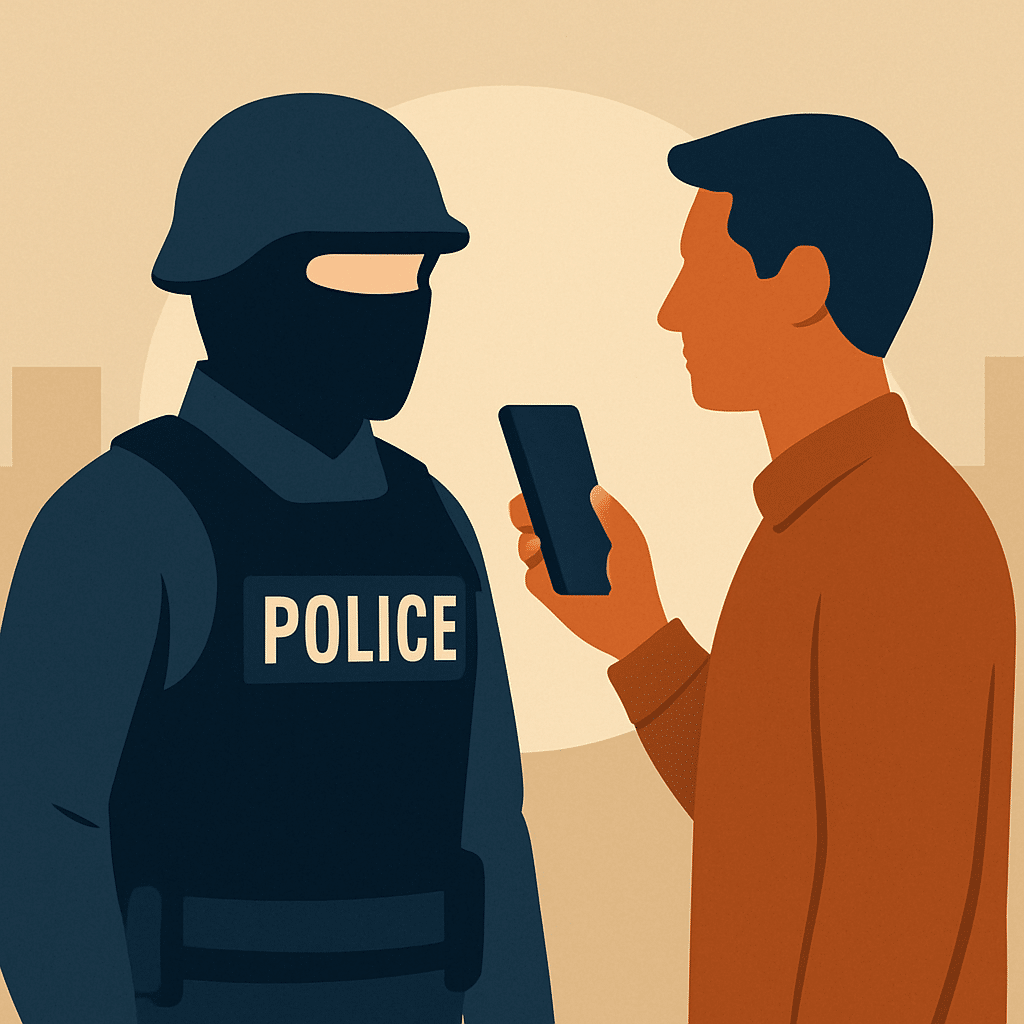
When you’re stopped or questioned by law enforcement, it’s natural to expect transparency. In Maryland, police officers are generally required to identify themselves when exercising their authority. But what happens if an officer refuses to do so? Knowing your rights can help you stay safe and protect yourself legally.
Do Police Have to Show Their Face or Identify Themselves?
Maryland law does not specifically require police to keep their face uncovered at all times. Officers in certain situations—such as during tactical operations, riot control, or undercover work—may wear masks or helmets.
However, identification is different from visibility. Police departments across Maryland, including those in Prince George’s, Charles, Calvert, and St. Mary’s Counties, have policies that require officers to provide their name and badge number when asked, unless doing so would put them at risk.
Even in plainclothes or undercover roles, once an officer makes an arrest or exercises authority, they must typically verbally identify themselves as law enforcement.
Your Rights If an Officer Refuses to Identify Themselves
If you find yourself in a situation where a police officer won’t identify themselves, here are the rights and tools available to you:
1. Right to Ask for Identification
You may politely request the officer’s name and badge number. If they refuse, make note of any patrol car numbers, insignia, or other identifying features.
2. Right to Record
Maryland law allows you to record police officers in public so long as you are not interfering with their duties. A video can serve as powerful evidence if you need to file a complaint or defend yourself later.
3. Right to File a Complaint
Under the Maryland Police Accountability Act of 2021, each county has a Police Accountability Board. If an officer refuses to identify themselves, you can report the incident to the board or the department’s Internal Affairs Division.
4. Right to Legal Representation
If you are charged with a crime, a refusal to identify can sometimes be used to challenge probable cause, attack the credibility of the officer, or even fight to suppress evidence.
Practical Steps to Take in the Moment
- Stay calm and polite. Don’t escalate the encounter.
- Comply with lawful commands. You can contest issues later in court.
- Document everything. Record video if possible, and note the time, place, and details.
- Ask again, respectfully. Officers may eventually provide their badge number.
Filing a Complaint in Southern Maryland
If you experienced an encounter in Southern Maryland, you can file a complaint with your county’s Police Accountability Board:
- Prince George’s County – Police Accountability Board website
- Charles County – Police Accountability Board through the County Government
- Calvert County – Contact the County’s designated oversight office
- St. Mary’s County – Police Accountability Board via the Commissioners’ office
Each board is responsible for reviewing misconduct complaints, including those where officers refuse to provide proper identification.
Why This Matters
Transparency is a cornerstone of public trust in law enforcement. When an officer refuses to identify themselves, it raises serious concerns about accountability. Courts take these issues seriously, and defense attorneys often use failures of identification to highlight constitutional violations or credibility problems in criminal cases.
Protect Your Rights With a Southern Maryland Criminal Lawyer
If you or someone you know has been stopped or arrested by an officer who refused to identify themselves, don’t face the system alone. At Southern Maryland Criminal Defense, we fight to protect your rights and hold law enforcement accountable.
👉 Contact us today for a free consultation and let an experienced Southern Maryland criminal lawyer help you understand your options.
